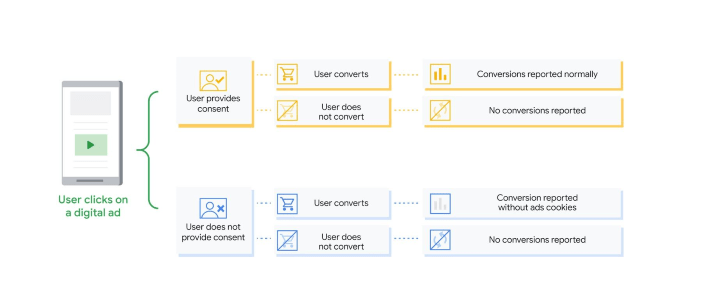Source: Google
By leveraging Consent Mode, OneTrust customers can control when Google products will read and write cookies on a visitor’s device for the purposes of advertising or analytics. OneTrust customers also have the flexibility to integrate with the Google consent APIs using either gtag.js or GTM, or a combination of the two. Additionally, geolocation capabilities can be leveraged to support differing requirements around the world.
The leading Consent & Preferences solution
OneTrust supports thousands of websites in maintaining compliance with global privacy regulations, including GDPR, CCPA, LGPD, and more. Our Cookie Consent solution offers customizable consent banners that adapt to evolving privacy laws, allowing businesses to collect informed consent from users in compliance with region-specific regulations before deploying cookies or processing personal data.
Our solution integrates seamlessly with all web technologies and ensures that user consent is the key trigger for cookie deployment, data collection, and processing activities. This guarantees businesses can configure their websites to activate cookies only after receiving explicit user consent.
The solution provides granular control, enabling users to manage cookie preferences by category – such as strictly necessary, performance, analytics, and advertising cookies. Businesses can tailor these triggers to meet the requirements of diverse privacy regulations, and the platform also supports consent renewals, audit logs, and geolocation-based consent experiences. For detailed insights on how OneTrust integrates with Google’s Consent Mode and APIs, explore our technical guide.
For more details on how OneTrust integrates with Google’s Consent Mode and APIs, read our technical guide. Want to learn more? Get started today!


































